
Miðvágur: The Heart of Vágar Island
Miðvágur is a picturesque village located on the island of Vágar in the Faroe Islands. Known for its stunning landscapes and serene atmosphere, Miðvágur is the perfect destination for nature lovers and those looking to experience traditional Faroese culture. The village is nestled between rolling hills and the breathtaking Sørvágur Fjord, offering visitors an unparalleled view of the surrounding natural beauty. One of the main attractions in Miðvágur is the nearby Lake Sørvágsvatn, the largest lake in the Faroe Islands. The lake appears to hover above the ocean when viewed from the right angle, creating a mesmerizing optical illusion. Hiking to Trælanípa, a cliff that offers a panoramic view of the lake and the ocean, is a must-do activity for adventure seekers. The hike is relatively easy and suitable for most fitness levels, making it accessible for many tourists. The village itself is home to charming, colorful houses and a rich history. Visitors can explore the Miðvágur Church, which dates back to 1940, and the local museum that showcases artifacts and stories from the village's past. The people of Miðvágur are known for their warm hospitality, and tourists often find themselves welcomed with open arms. Whether you're interested in outdoor activities, cultural experiences, or simply relaxing in a beautiful setting, Miðvágur has something to offer everyone.
Local tips in Miðvágur
- Visit during the summer months to enjoy the best weather for hiking and outdoor activities.
- Pack waterproof clothing as the weather can be unpredictable and rain is common.
- Try the local Faroese cuisine at one of the village's cozy restaurants.
- Take a guided tour to learn about the village's history and natural surroundings.
- Bring a good camera to capture the stunning landscapes and unique views.
Miðvágur: The Heart of Vágar Island
Miðvágur is a picturesque village located on the island of Vágar in the Faroe Islands. Known for its stunning landscapes and serene atmosphere, Miðvágur is the perfect destination for nature lovers and those looking to experience traditional Faroese culture. The village is nestled between rolling hills and the breathtaking Sørvágur Fjord, offering visitors an unparalleled view of the surrounding natural beauty. One of the main attractions in Miðvágur is the nearby Lake Sørvágsvatn, the largest lake in the Faroe Islands. The lake appears to hover above the ocean when viewed from the right angle, creating a mesmerizing optical illusion. Hiking to Trælanípa, a cliff that offers a panoramic view of the lake and the ocean, is a must-do activity for adventure seekers. The hike is relatively easy and suitable for most fitness levels, making it accessible for many tourists. The village itself is home to charming, colorful houses and a rich history. Visitors can explore the Miðvágur Church, which dates back to 1940, and the local museum that showcases artifacts and stories from the village's past. The people of Miðvágur are known for their warm hospitality, and tourists often find themselves welcomed with open arms. Whether you're interested in outdoor activities, cultural experiences, or simply relaxing in a beautiful setting, Miðvágur has something to offer everyone.
When is the best time to go to Miðvágur?
Iconic landmarks you can’t miss
Kirkjubømúrurin
Discover Kirkjubøur: A Historical Gem in the Heart of the Faroe Islands with Stunning Landscapes and Rich Cultural Heritage.
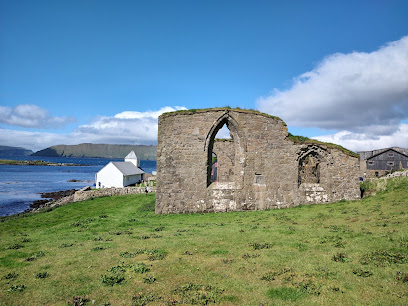
Múlafossur Waterfall
Discover the enchanting Mülafossur Waterfall in the Faroe Islands, where nature’s beauty cascades into the Atlantic in a breathtaking display.
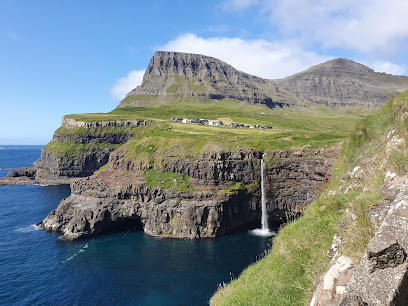
Fossá
Discover the breathtaking beauty of Fossá, a stunning waterfall nestled in the serene landscapes of the Faroe Islands, perfect for nature lovers and photographers alike.
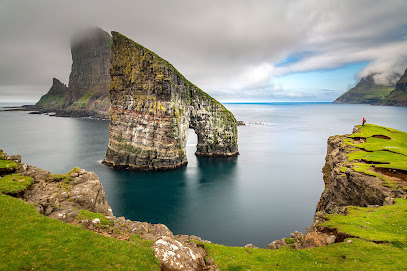
The Nordic House
Experience the vibrant culture of the Faroe Islands at the Nordic House, a hub of art, music, and community in Tórshavn.
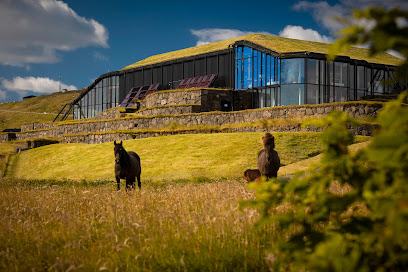
Skansin
Discover Skansin, a historic fortress in Tórshavn offering stunning views and a glimpse into the Faroe Islands' maritime heritage.
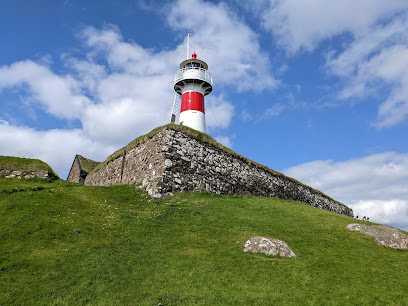
View on Mullafossur and Gasadalur village
Experience the stunning Mullafossur Waterfall and Gasadalur village, a picturesque gem in the Faroe Islands, perfect for nature lovers and photographers.
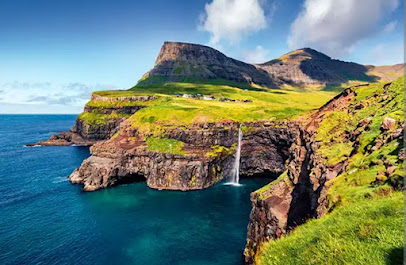
The Seal Woman (Kópakonan)
Explore the legend of Kópakonan at Mikladalur's breathtaking sculpture, a perfect blend of art and Faroese folklore.
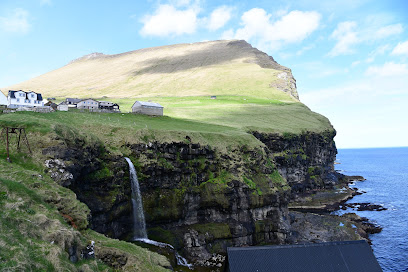
Trælanípa
Discover the breathtaking beauty of Trælanípa, a stunning cliffside attraction in the Faroe Islands, where nature and adventure await.
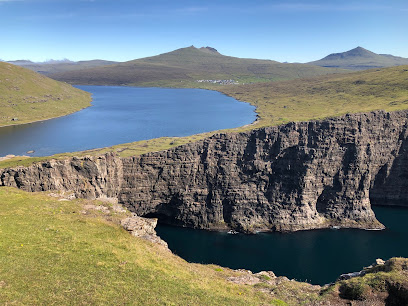
The National Gallery of The Faroe Islands
Explore the artistic soul of the Faroe Islands at The National Gallery, showcasing local talent in a breathtaking setting.
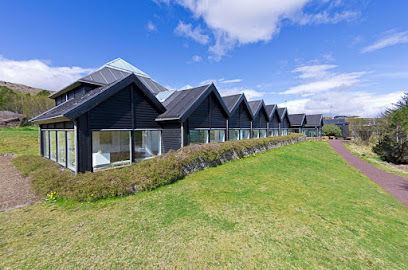
Tjóðsavnið (Faroe Islands National Museum)
Explore Tjósavnið, the Faroe Islands National Museum, where history, art, and nature converge in a captivating cultural experience.
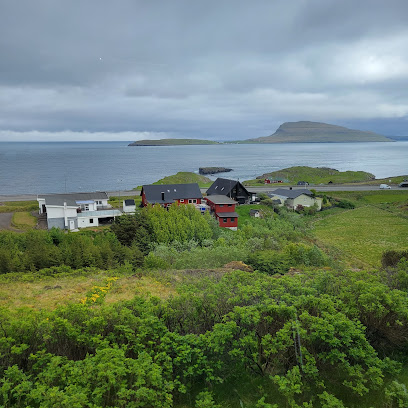
Kallur Lighthouse
Discover the enchanting Kallur Lighthouse, a stunning scenic spot in the Faroe Islands, offering breathtaking views and an unforgettable hiking experience.
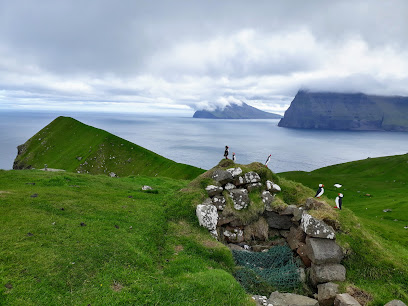
Dúvugarðar Heritage Farm
Experience the rich heritage of the Faroe Islands at Dúvugarðars Heritage Farm, where culture, nature, and tradition come alive.
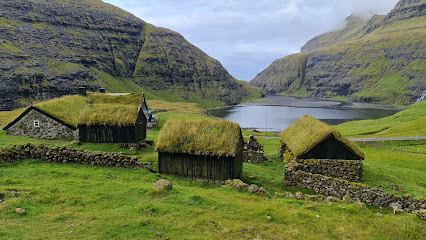
Slave Cliff (Lake Above the Ocean)
Experience the breathtaking beauty of Slave Cliff in the Faroe Islands, where dramatic landscapes meet the vast ocean for an unforgettable hiking adventure.
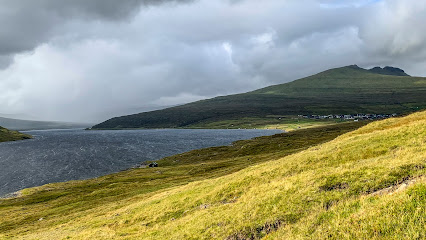
Bøsdalafossur Waterfall
Discover the breathtaking beauty of Bøsdalafossur Waterfall in the stunning Faroe Islands, an ideal destination for nature lovers and adventure seekers.
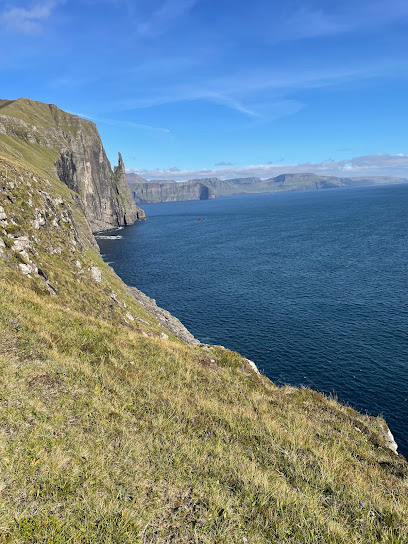
Giljanes Hostel & Campsite
Discover the breathtaking beauty of the Faroe Islands from Giljanes Hostel & Campsite, your ideal base for adventure and relaxation in Sandavágur.

Unmissable attractions to see
Múlafossur Waterfall
Experience the iconic Múlafossur Waterfall in the Faroe Islands, where cascading waters meet dramatic landscapes and village charm.
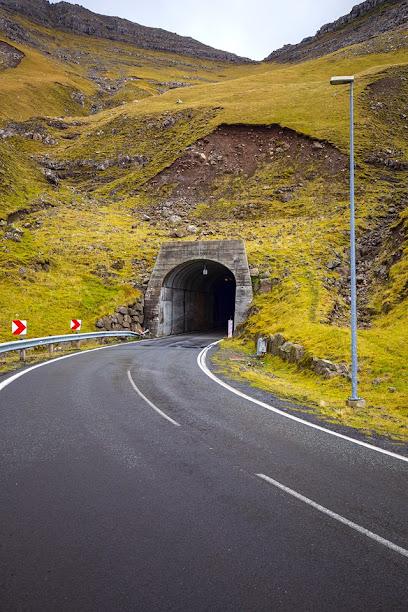
Gjógv Natural Harbour
Discover Gjógv Natural Harbour: a picturesque Faroese village with dramatic cliffs, a unique sea-filled gorge, and stunning North Atlantic views.
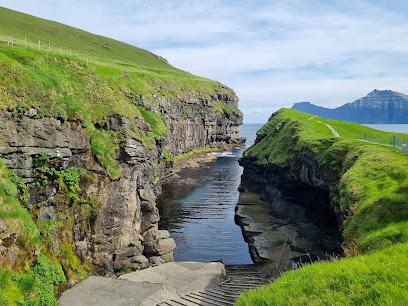
View on Mullafossur and Gasadalur village
Experience the iconic Múlafossur Waterfall in the Faroe Islands, where cascading waters meet dramatic cliffs and a charming village backdrop.
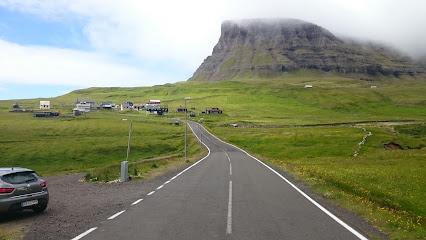
Kallur Lighthouse
Hike to the iconic Kallur Lighthouse on Kalsoy Island for breathtaking views and a taste of Faroese maritime history. A must-see destination!
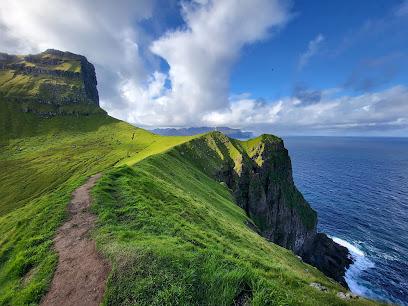
Tjørnuvik Beach
Experience the dramatic beauty of Tjørnuvík Beach, a black sand paradise with stunning views of the Risin and Kellingin sea stacks.
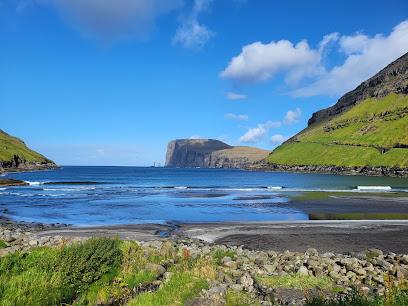
Svartafoss Waterfall
Discover Svartafoss Waterfall near Tórshavn: a serene escape with basalt columns, lush greenery, and easy access for nature lovers.
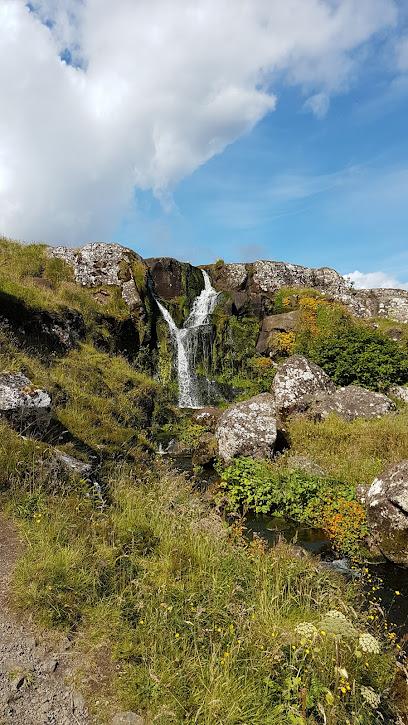
Risin og Kellingin viewpoint
Witness the legendary Giant and Witch sea stacks from this stunning viewpoint on Eysturoy Island, Faroe Islands. A must-see natural wonder!
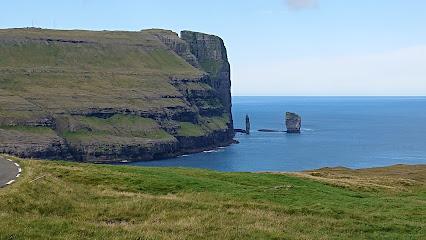
Tjørnuvík Kirkja
Discover the charm of Tjørnuvík Kirkja, a picturesque Lutheran church nestled in the stunning landscape of the Faroe Islands.
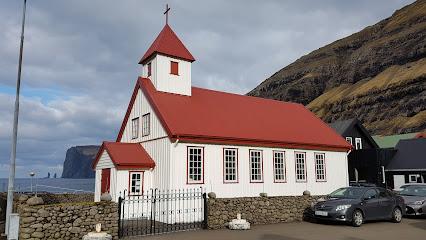
Skarðsáfossur
Discover Skarðsáfossur waterfall in the Faroe Islands: a hidden gem offering serene beauty and breathtaking views of rugged landscapes from the sea.
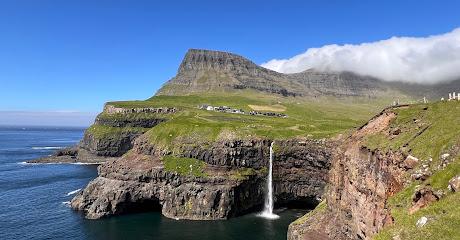
The Nix
Discover the captivating Nix sculpture on the shores of Lake Sørvágsvatn, where Faroese folklore meets breathtaking natural beauty.
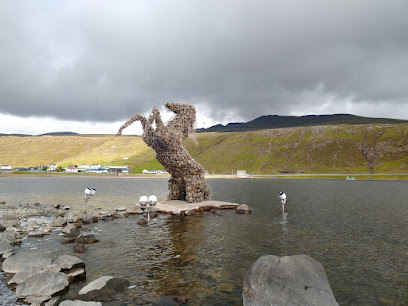
Veðrur
Discover Veðrur, a captivating sculpture in Tórshavn, embodying Faroese artistry and offering a picturesque setting for memorable travels.
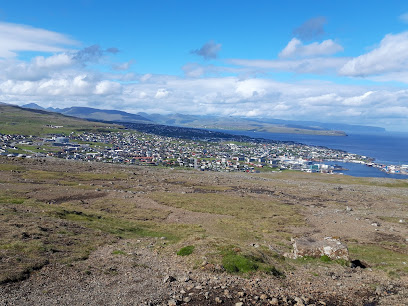
Eysturoy Tunnel
Experience the world's first undersea roundabout in the Faroe Islands, connecting Streymoy and Eysturoy with art and innovative engineering.
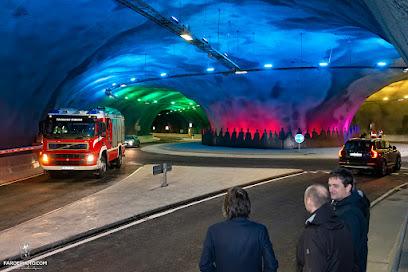
Sunset Viewpoint
Experience breathtaking sunsets and panoramic views of the Atlantic Ocean from this scenic observation deck in the remote village of Gásadalur.
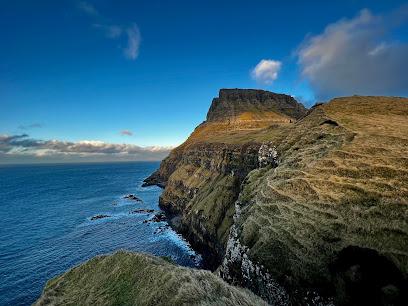
Ásmundarstakkur
Discover Ásmundarstakkur, a breathtaking rock pillar on Suðuroy Island, offering dramatic coastal views and a glimpse into the wild Faroe Islands.
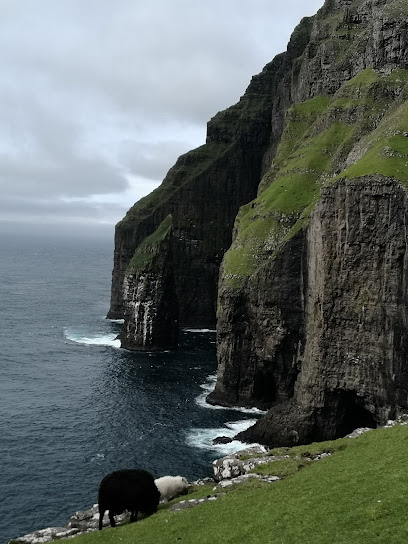
Vestmanna
Experience the stunning landscapes and rich wildlife of Vestmanna, a picturesque village in the heart of the Faroe Islands.
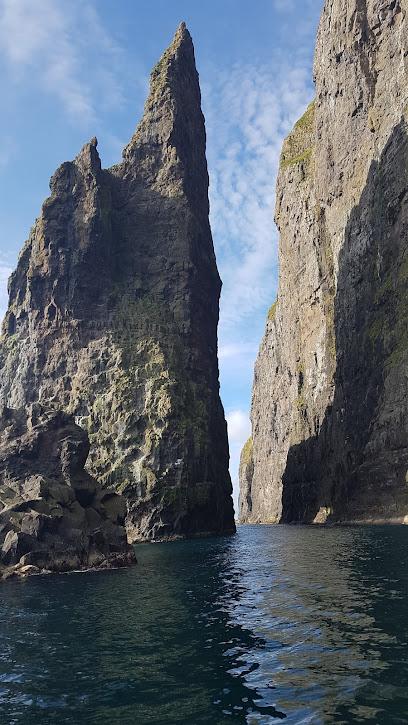
Essential places to dine
Gjaargardur Guesthouse Gjogv
Experience authentic Faroese cuisine at Gjaargardur Guesthouse in Gjógv—where local flavors meet breathtaking views.
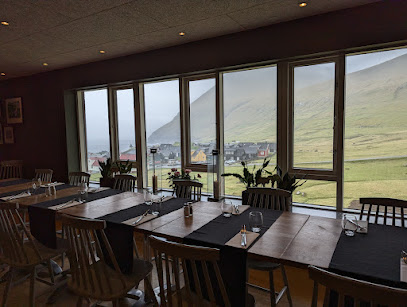
THE TARV Grillhouse
Experience exquisite Faroese cuisine at THE TARV Grillhouse in Tórshavn – where local flavors meet modern dining.
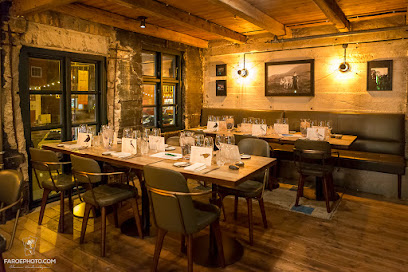
Áarstova
Discover Áarstova: A Culinary Journey Through Faroese Flavors in Tórshavn's Heart.
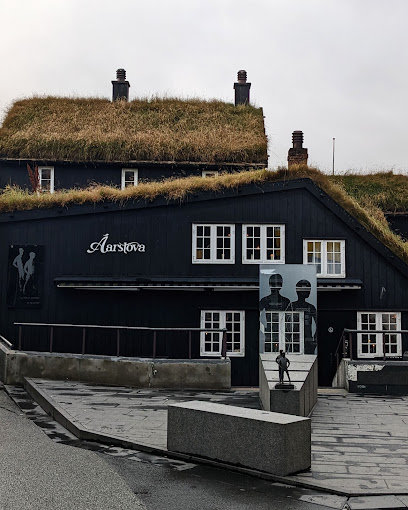
Barbara Fish House
Discover exquisite seafood dining at Barbara Fish House in Tórshavn - where fresh flavors meet Faroese tradition.
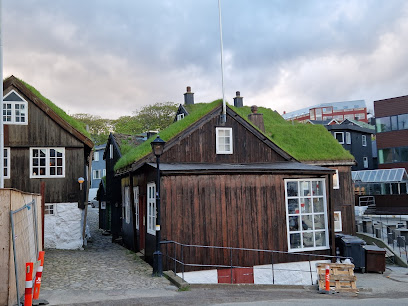
Koks Restaurant
Experience exceptional Faroese cuisine at Koks Restaurant—where local ingredients meet innovative culinary techniques in a stunning setting.
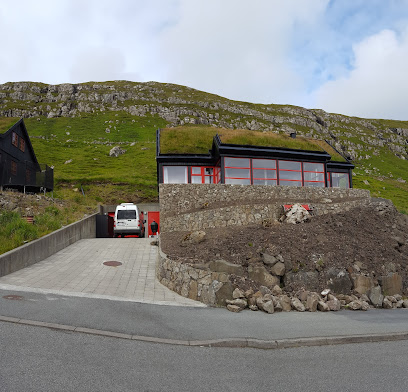
Café Zorva
Discover authentic Faroese cuisine at Café Zorva in Sørvágur—where local flavors meet stunning views.
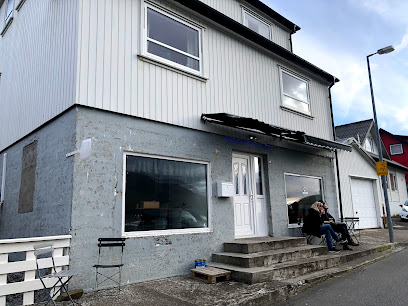
Kafe Umami
Discover Kafe Umami in Tórshavn: Where Local Flavors Meet Modern Cuisine in a Cozy Atmosphere.
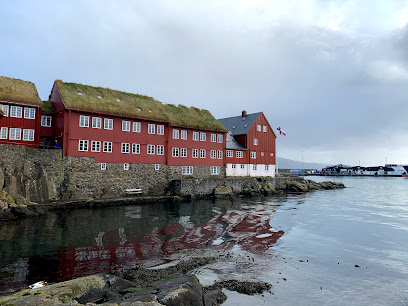
Muntra
Discover authentic Faroese flavors at Muntra in Fuglafjørður – where local ingredients meet modern culinary artistry.
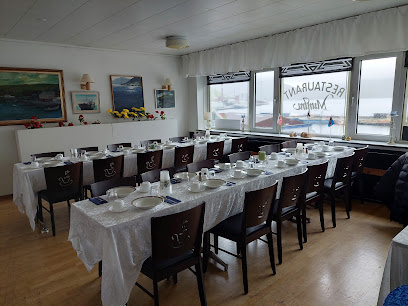
Resturant Cafe Pollastova
Discover authentic Faroese flavors at Café Pollastova in Sørvágur, where stunning views meet delightful local cuisine.
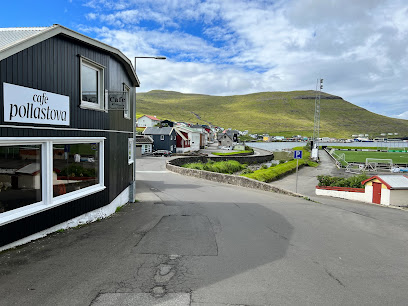
Ræst
Experience authentic Faroese cuisine at Ræst in Tórshavn - where local ingredients meet innovative culinary artistry.
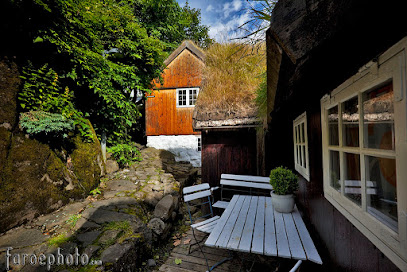
hvonn
Experience authentic Faroese cuisine at Hvonn in Tórshavn - where local flavors meet modern dining.
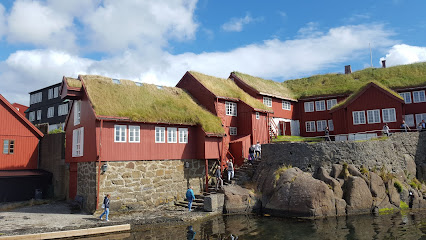
Caféin á Mølini
Discover Caféin á Mølini - where authentic Faroese flavors meet stunning coastal views in Skálavík.
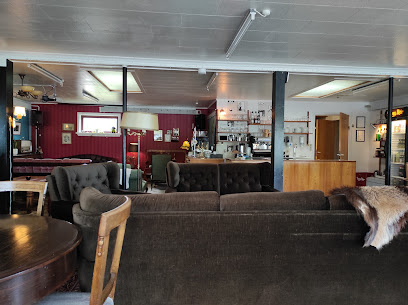
Smiðjan
Discover authentic Faroese cuisine at Smiðjan in Miðvágur – where local flavors meet warm hospitality.
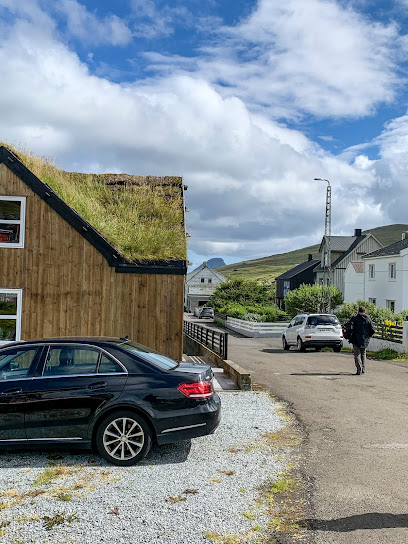
Joe Pizza
Experience the unique taste of authentic pizza at Joe Pizza in Hvalvík - where local flavors meet culinary creativity amidst stunning scenery.
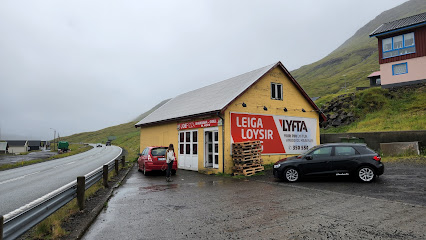
Disvoy
Discover authentic Scandinavian cuisine at Disvoy in Vestmanna, where local ingredients meet traditional flavors amidst stunning island scenery.
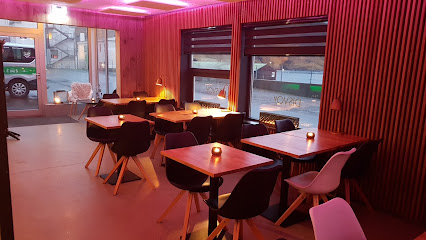
Markets, malls and hidden boutiques
Miklagarður
Explore Miklagarður in Tórshavn, your go-to supermarket for local delicacies and everyday essentials in the heart of the Faroe Islands.
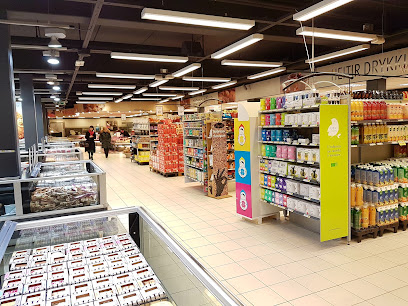
Rúsdrekkasøla Landsins - Tórshavn
Discover the essence of Faroese craftsmanship at Rúsdrekkasøla Landsins, Tórshavn's premier liquor store offering local beers, wines, and spirits.
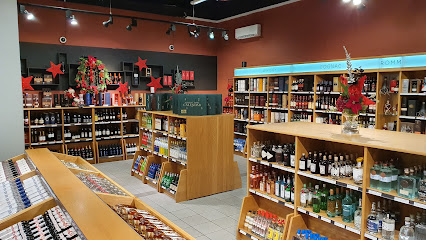
FK Super Market
Explore FK Super Market in Miðvágur for fresh local produce and unique Faroese specialties, making your shopping experience unforgettable.
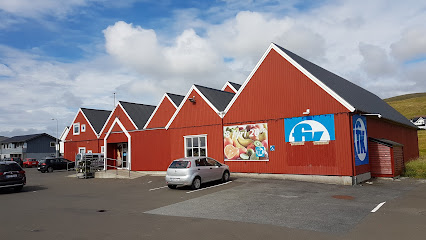
Á Landavegur
Discover local flavors and essentials at Á Landavegur, the go-to supermarket in Tórshavn, Faroe Islands.
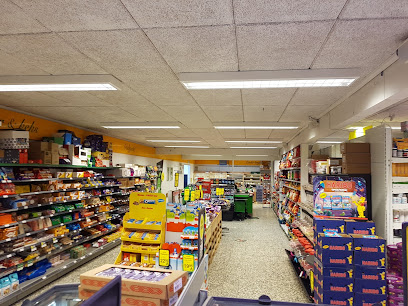
Bónus
Discover the best local and international products at Bónus supermarket in Tvøroyri, your essential stop while exploring the picturesque Faroe Islands.
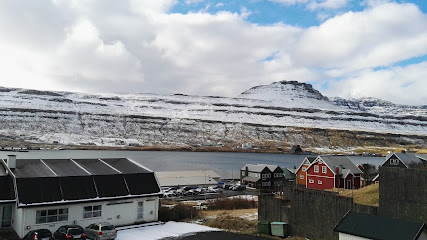
Á Handil
Explore the flavors of the Faroe Islands at Á Handil, Tórshavn's top grocery store offering local produce and international delights.
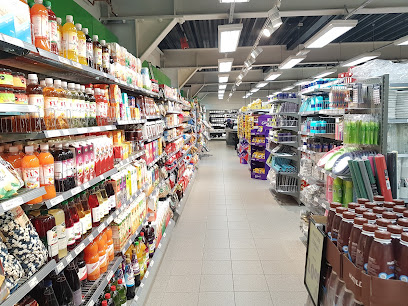
Guðrun & Guðrun
Explore sustainable fashion at Guðrun & Guðrun, where traditional craftsmanship meets modern design in Tórshavn, Faroe Islands.
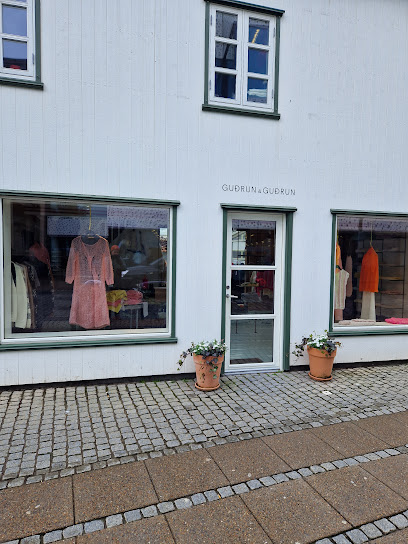
Rúsdrekkasøla Landsins - Miðvágur
Discover the finest selection of local beers and wines at Rúsdrekkasøla Landsins in Miðvágur, a treasure trove of Faroese spirits.
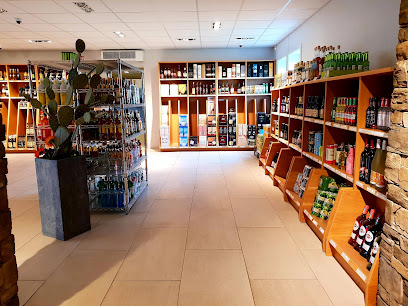
Inn við Grønlandsvegin
Explore the rich flavors of the Faroe Islands at Inn við Grønlandsvegin, Tórshavn's go-to grocery store for local specialties and fresh produce.
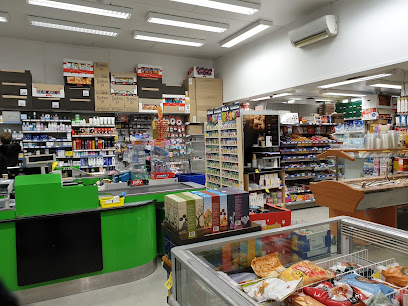
Torgið Shopping Center
Discover local culture and modern shopping at Torgið Shopping Center in Vágur, the perfect blend of Faroese charm and contemporary retail.
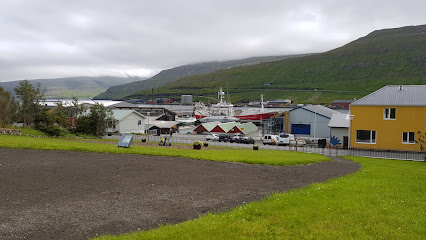
Keypssamtøkan
Discover the flavors of the Faroe Islands at Keypssamtøkan, your essential grocery stop in Glyvrar, offering local delicacies and fresh produce.
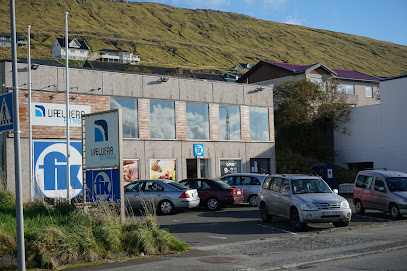
Ullvøruhúsið
Explore Ullvøruhúsið in Tórshavn for authentic Faroese wool clothing and unique fashion pieces that reflect the beauty of the Faroe Islands.
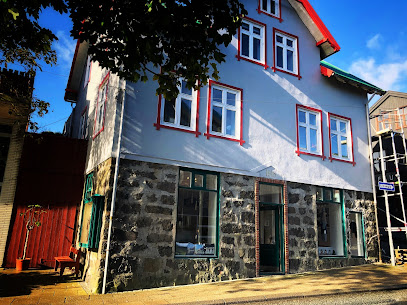
Á Shop
Explore Á Shop in Vágur for a taste of local Faroese food and a variety of international products in a welcoming supermarket atmosphere.
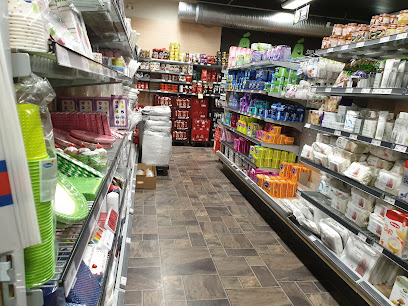
Dávur’s TuneUp Shop
Discover the essential rest stop at Dávur’s TuneUp Shop in Miðvágur, offering clean facilities for travelers exploring the stunning Faroe Islands.

Fjord by Suffía Nón
Explore the charm and creativity of the Faroe Islands at Fjord by Suffía Nón, a unique gift shop offering handcrafted treasures and souvenirs.
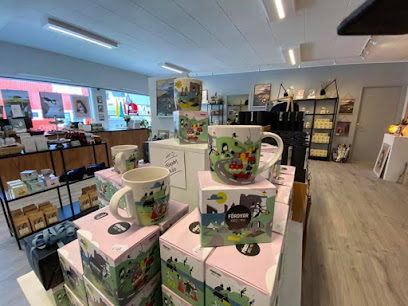
Essential bars & hidden hideouts
Irish Pub Torshavn
Discover the authentic Irish Pub Torshavn, where hearty meals and vibrant nights blend seamlessly into the charm of the Faroe Islands.
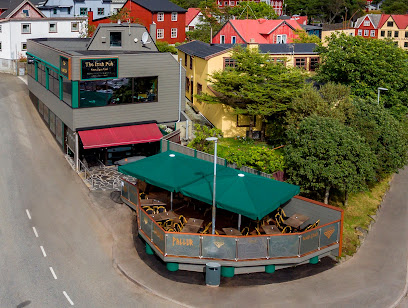
THE TARV Grillhouse
Explore the culinary wonders of THE TARV Grillhouse in Tórshavn, where local ingredients meet international flavors in a stunning waterfront setting.
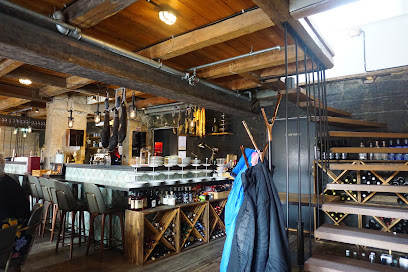
Barbara Fish House
Discover the freshest seafood and authentic Faroese flavors at Barbara Fish House in Tórshavn, a must-visit culinary gem.
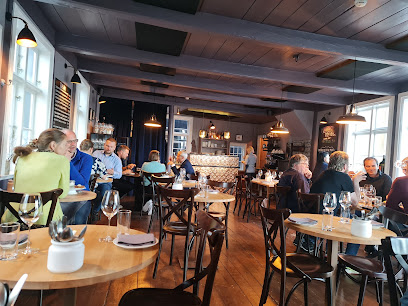
Sirkus Bar
Experience the lively atmosphere of Sirkus Bar in Tórshavn, where locals and tourists unite for unforgettable nights filled with great drinks and live entertainment.
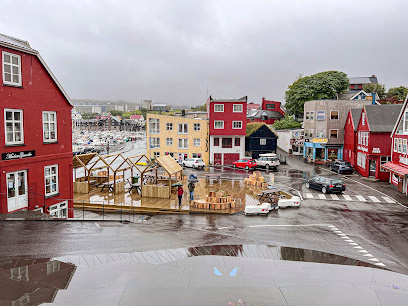
Mikkeller Tórshavn
Experience the vibrant craft beer culture at Mikkeller Tórshavn, where unique brews and a quirky atmosphere await every visitor.
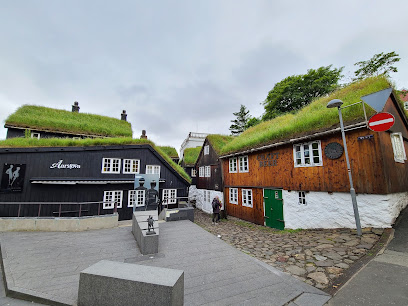
Kafé Kaspar
Discover Kafé Kaspar, a delightful café in Tórshavn offering fresh bagels, hearty brunch, and specialty coffee in a cozy atmosphere.
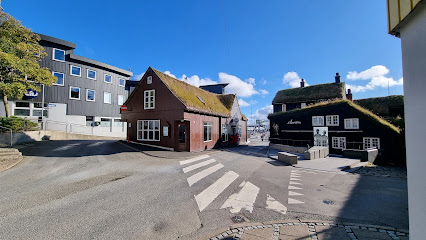
Essabarr
Discover the charm of Essabarr, a cozy cafe in Tórshavn offering local flavors and a vibrant atmosphere perfect for tourists.
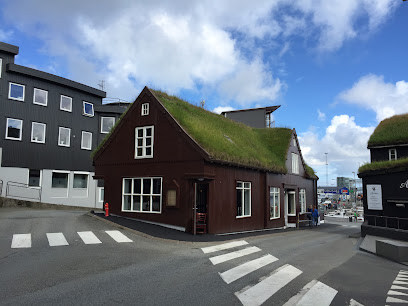
OY Brewing
Discover the best of Faroese craft beer and cuisine at OY Brewing in Tórshavn, where every sip tells a story.
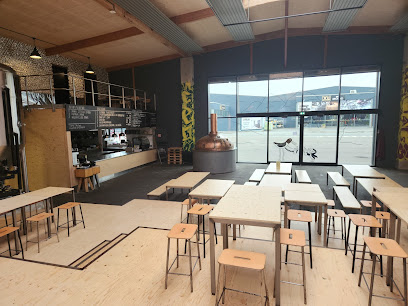
Smiðjan
Discover Smiðjan, a cozy restaurant in Miðvágur, serving local and international dishes in a warm atmosphere perfect for tourists.
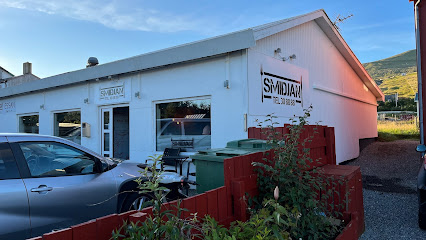
Pizza 67
Experience the best of Italian cuisine in Tórshavn with Pizza 67, where every bite is a slice of heaven.
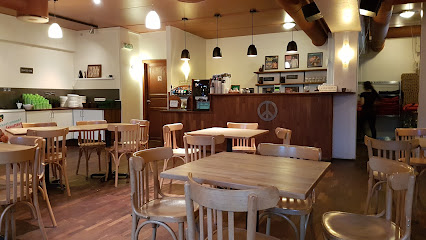
Roykstovan
Experience the warmth of Klaksvík at Roykstovan, where local beverages and a cozy atmosphere meet stunning views of the Faroe Islands.
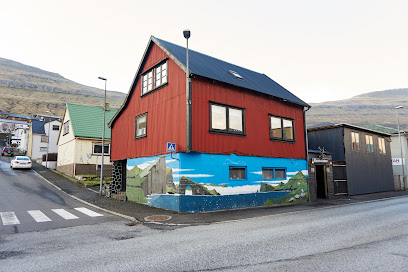
Glitnir
Discover Glitnir: A vibrant bar in Tórshavn, perfect for drinks, socializing, and experiencing local nightlife.
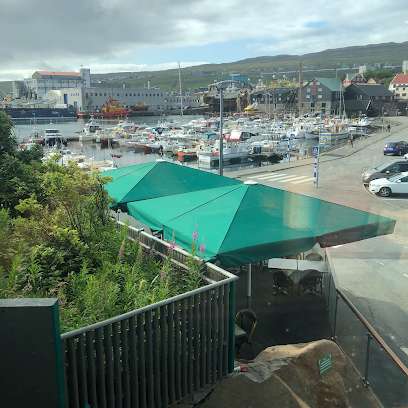
Blábar
Experience Tórshavn's vibrant nightlife at Blábar, where live jazz meets exquisite cocktails in a cozy atmosphere.
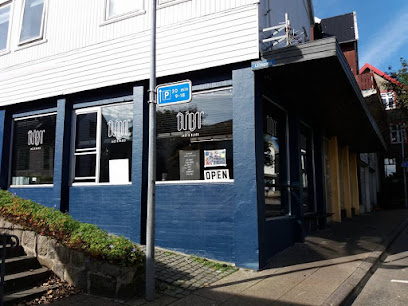
Tórshøll
Discover Tórshøll, the vibrant bar in Tórshavn offering cold drinks, live music, and an unforgettable local experience in the heart of the Faroe Islands.
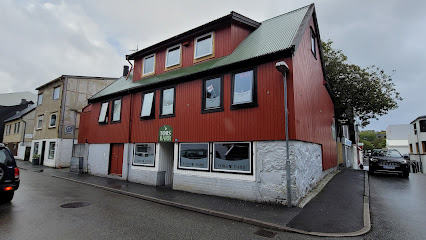
Local Phrases
-
- HelloHalló
[HAH-loh] - GoodbyeFarvæl
[FAHR-vail] - YesJa
[ya] - NoNei
[nay] - Please/You're welcomeVænta vælkominn
[VAYN-tah VAIL-koh-meen] - Thank youTakk fyri
[tahk FEER-ee] - Excuse me/SorryFyrirgef mær
[FEER-eer-yev mire] - How are you?Hvussu hevur tú tað?
[KHOOS-soo HEH-vur too tah] - Fine. And you?Í góðum lagi. Og tú?
[ee GAW-dum LAH-yee oh too] - Do you speak English?Talar tú enskt?
[TAH-lar too ENT-skt] - I don't understandEg skilji ikki
[ay shil-yee EE-kee]
- HelloHalló
-
- I'd like to see the menu, pleaseEg vil síggja matseðilin, vænta
[ay vil SEE-ya maht-SEY-dil-in, VAYN-ta] - I don't eat meatEg eta ikki kjøt
[ay EHT-ah EE-kee chyut] - Cheers!Skál!
[skowl] - I would like to pay, pleaseEg vil gjalda, vænta
[ay vil GYAL-dah, VAYN-ta]
- I'd like to see the menu, pleaseEg vil síggja matseðilin, vænta
-
- Help!Hjálp!
[HYOULP] - Go away!Far burtur!
[FAHR BOOR-toor] - Call the Police!Róður til lögregluna!
[ROH-vur teel LUR-eh-gloona] - Call a doctor!Róður til læknarin!
[ROH-vur teel LAYK-nah-reen] - I'm lostEg er tapað/ósagd
[ay air TAH-paht/OS-ahgd] - I'm illEg er sjúk/veikur
[ay air SHYOOK/VAY-kur]
- Help!Hjálp!
-
- I'd like to buy...Eg vil keypa...
[ay vil KEH-pah] - I'm just lookingEg er bert at síggja
[ay air BAIRT at SEE-ya] - How much is it?Hvat kostar tað?
[kvaht KOH-stahr tah] - That's too expensiveTað er ov dýrt
[tah air ohv DEERT] - Can you lower the price?Kanstu svara prísin?
[KAHN-stoo SVAH-rah PREE-sin]
- I'd like to buy...Eg vil keypa...
-
- What time is it?Hvat er klokkan?
[kvaht air KLOH-kahn] - It's one o'clockTað er eitt
[tah air ayht] - Half past (10)Half tið (10)
[half teed (10)] - MorningMorgun
[MOR-goon] - AfternoonSeinnapartin
[SAYN-nah-PAR-teen] - EveningKvøld
[kvul] - YesterdayÍ gjár
[ee GYOWR] - TodayÍ dag
[ee dah] - TomorrowÍ morgin
[ee MOR-gin] - 1Eitt
[ayht] - 2Tvær
[TVAIR] - 3Trý
[TROO] - 4Fýra
[FEER-ah] - 5Fimm
[feem] - 6Seks
[seks] - 7Sjey
[shay] - 8Átta
[OHT-tah] - 9Niðan
[NEE-than] - 10Tíggju
[TEE-goo]
- What time is it?Hvat er klokkan?
-
- Where's a/the...?Hvar er ein/tað...?
[kvar air ayn/tah] - What's the address?Hvat er heimadressan?
[kvaht air HAME-ah-dress-ahn] - Can you show me (on the map)?Kanstu vísa mær (á korti)?
[KAHN-stoo VEE-sah mire (ow KOR-tee)] - When's the next (bus)?Nær kemur næsti (bussur)?
[nyar KEH-moor NAY-stee (BOO-soor)] - A ticket (to ....)Einmið billett (til ....)
[ayn-midh bil-EHT (til ....)]
- Where's a/the...?Hvar er ein/tað...?
History of Miðvágur
-
Miðvágur, located on the island of Vágar in the Faroe Islands, has been inhabited since the Viking Age. Archaeological finds suggest that the area was settled as early as the 9th century. The name Miðvágur translates to 'Mid-Bay,' indicative of its central position along the island's coastline, making it a strategic settlement for early Norse explorers and settlers.
-
One of the most famous legends associated with Miðvágur is the tale of Beinisvørð, a dramatic cliff along the coastline. According to local folklore, the cliff was named after a Viking chieftain who fell to his death there. The story is a poignant part of Miðvágur's cultural heritage, embodying the perilous beauty and mystique of the Faroe Islands.
-
The Church of Miðvágur, built in 1947, stands as a testament to the town's enduring faith and community spirit. The current church replaced an older structure, demonstrating the town's evolution over centuries. It features traditional Faroese architectural styles and serves as a central gathering place for the town's residents, playing a significant role in their social and spiritual lives.
-
During World War II, the Faroe Islands were occupied by British forces to preempt a German invasion. Miðvágur, like other Faroese towns, was significantly affected. The presence of British soldiers brought both challenges and opportunities, including improved infrastructure and stronger international connections. Many of the wartime constructions and fortifications can still be seen today, serving as a historical reminder of this turbulent period.
-
In recent decades, Miðvágur has become a notable destination for tourists exploring the natural beauty and unique culture of the Faroe Islands. Key attractions include the nearby Sørvágsvatn lake, the largest lake in the Faroe Islands, and the iconic waterfall Bøsdalafossur. The rise in tourism has brought economic growth and cultural exchange, while also presenting challenges in balancing development with the preservation of the town's traditional ways of life.
-
Miðvágur hosts a variety of cultural events that celebrate Faroese traditions. One such event is the Ólavsøka festival, held every July, which includes boat races, traditional Faroese chain dancing, and other cultural activities. These events are vital in maintaining the town's rich cultural heritage and fostering a sense of community among its residents.
Miðvágur Essentials
-
Miðvágur is located on the island of Vágar in the Faroe Islands. The nearest airport is Vágar Airport (FAE), which is approximately 7 kilometers from Miðvágur. Direct flights to Vágar Airport are available from several European cities, including Copenhagen, Edinburgh, and Reykjavik. From the airport, you can take a taxi or a bus to reach Miðvágur. The bus service is reliable and offers a scenic route through the island.
-
Miðvágur is a small village, and many attractions are within walking distance. For longer trips, local buses are available and connect to other parts of the island and the Faroe Islands. Taxis are also available but can be expensive. Renting a car is a convenient option for exploring Vágar and the surrounding islands at your own pace. Bicycles can also be rented for a more eco-friendly and immersive travel experience.
-
The official currency in the Faroe Islands is the Faroese króna (DKK), which is equivalent to the Danish krone. Credit cards are widely accepted in hotels, restaurants, and shops. However, it is advisable to carry some cash for smaller establishments and rural areas. ATMs are available in Miðvágur, but it is a good idea to withdraw sufficient cash in larger towns or at the airport.
-
Miðvágur is generally a very safe destination for tourists. Crime rates are low, and violent crime is rare. However, it is always wise to take standard precautions, such as not leaving valuables unattended and being aware of your surroundings. There are no specific high-crime areas targeting tourists in Miðvágur. Always follow local advice and guidelines, especially when exploring natural areas.
-
In case of emergency, dial 112 for immediate assistance. This number can be used for police, fire, and medical emergencies. The nearest medical facility is Vágar Health Center, located in the village of Sørvágur, about 5 kilometers from Miðvágur. It is recommended to have travel insurance that covers medical emergencies. Pharmacies are available in the area for minor health issues and over-the-counter medications.
-
Fashion: Do dress in layers and bring waterproof clothing, as the weather can be unpredictable. Avoid wearing overly flashy or revealing clothing. Religion: Do respect local customs and traditions. The Faroe Islands have a strong Christian heritage, so be respectful when visiting churches. Public Transport: Do be punctual and respectful to drivers and other passengers. Don't eat or drink on public transport. Greetings: Do greet people with a friendly hello or a handshake. Faroese people are generally warm and welcoming. Eating & Drinking: Do try local dishes such as skerpikjøt (dried mutton) and fish. Don't refuse food offers, as hospitality is highly valued.
-
To experience Miðvágur like a local, visit the village's small shops and cafes. Engage with locals, who are often very friendly and willing to share stories about the area's history and culture. Don't miss the hike to the beautiful Sørvágsvatn lake, also known as Leitisvatn, which offers stunning views and a unique optical illusion. Visit the local church, which is a key part of the village's cultural heritage. Participate in local events and festivals to immerse yourself in Faroese culture.
Trending Landmark in Miðvágur
-
Kirkjubømúrurin
-
Múlafossur Waterfall
-
Fossá
-
The Nordic House
-
Skansin
-
View on Mullafossur and Gasadalur village
-
The Seal Woman (Kópakonan)
-
Trælanípa
-
The National Gallery of The Faroe Islands
-
Tjóðsavnið (Faroe Islands National Museum)
-
Kallur Lighthouse
-
Dúvugarðar Heritage Farm
-
Slave Cliff (Lake Above the Ocean)
-
Bøsdalafossur Waterfall
-
Giljanes Hostel & Campsite
Nearby Cities to Miðvágur
-
Things To Do in Sandavágur
-
Things To Do in Sorvagur
-
Things To Do in Kvívík
-
Things To Do in Vestmanna
-
Things To Do in Hvalvík
-
Things To Do in Argir
-
Things To Do in Tórshavn
-
Things To Do in Strendur
-
Things To Do in Runavík
-
Things To Do in Gøta
-
Things To Do in Nólsoy
-
Things To Do in Klaksvik
-
Things To Do in Tvøroyri
-
Things To Do in Vágur
-
Things To Do in Seydisfjordur










